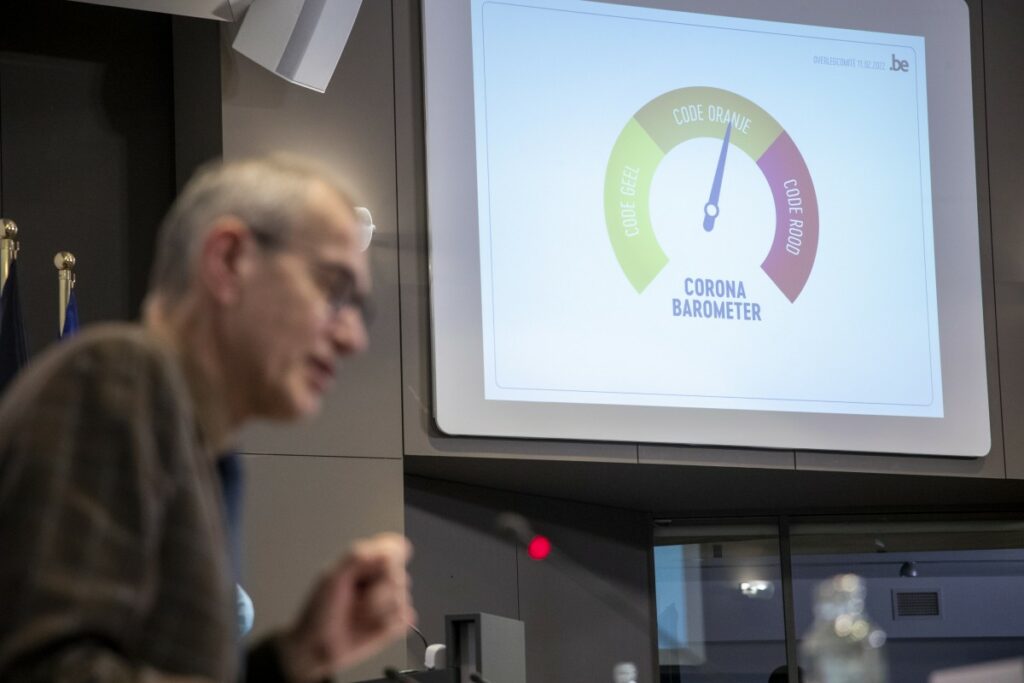Belgium's Covid-19 barometer will likely be put "back in the drawer" for a while next month if the number of cases continue to evolve favourably, said Federal Health Minister Frank Vandenbroucke on Tuesday.
Nearly all remaining Covid-19 measures were lifted when Belgium switched to 'code yellow' on the coronavirus barometer on 7 March, but the intention is to go one step further and remove the tool altogether at the next Consultative Committee meeting.
That meeting will take place on Friday 6 May, the cabinet of Prime Minister Alexander De Croo confirmed to The Brussels Times.
"If the epidemic continues to evolve favourably and the virus circulates little, then we can put the barometer back in the drawer for a while," Vandenbroucke told the Belga News Agency, adding that that does not mean it will be put away completely.
"If the virus continues to circulate like today, it will not work yet. But I am hopeful, because I see that the strength of the epidemic continues to decline," he added.
Related News
- Consultative Committee for Covid-19 postponed as Belgium remains yellow
- Corona Commission and GEMS expert group cease activities
- Covid-19 situation in Belgium continues to slowly improve
On Tuesday, the Sciensano National Health Institute announced that all parameters – number of confirmed new infections per day, hospitalisations, Covid-19 patients in intensive care and Covid-related deaths – are indeed showing a downward trend.
However, since the authorities decided to switch to 'code yellow,' the Consultative Committee that is expected to decide to do away with the barometer has already been postponed twice.
Now, a new date has been agreed on, according to Vandenbroucke. "We assume that the possible date of the next Consultative Committee is 6 May. We hope that by then, we will have a better view of the epidemic and that we will be able to make decisions with regard to the barometer."
Vandenbroucke stressed that the meeting will also serve another purpose than discussing the barometer, as he also wants to reach agreements on how to prepare for possible new outbreaks or variants. "What we have to do now is make sure we are well-prepared for the future," he said.

